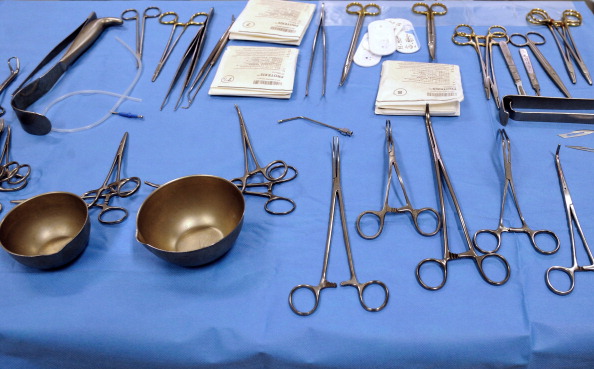If I was Health Department secretary, Martin Bowles, I’d be checking my superannuation paperwork is in order.
Over three hours on Monday morning, in a Senate estimates committee room, Bowles’s public service career blew up.
That morning, Fairfax papers ran a front-page splash on the work of a ‘secret’ policy task force, funded by federal government money, to develop an alternative hospital funding mechanism. This mechanism, a Commonwealth Hospital Benefit, would pay for all public and private episodes from a funding pool containing what the Commonwealth pays the states for public hospital services, the private health insurance rebate, and Medicare payments for hospital-related services.
The task force was coordinated by a small private consultancy, Global Access Partners which, it became clear from Bowles at Monday’s estimates hearing, got the project as sole and select tenderer. It has the involvement and support of state governments including, it transpires, the strong interest of Labor governments in Queensland and Victoria. That Labor state governments were attracted by the Commonwealth Hospital Benefit concept and are keen to see it developed speaks volumes: it would remove incentives for Australians to take private health insurance, and favour public hospitals over private.
Exactly what Labor wants.
As secret task forces go, this one wasn’t exactly secret. It was established in 2015 by the unlamented health minister Sussan Ley, and this project itself has not been hidden under a bushel, although the Fairfax leaks provide hitherto-unrevealed detail.
What damned Bowles so completely on Monday is work is still continuing on this controversial proposal, with his full secretarial blessing and Commonwealth taxpayers’ money.
According to what was drawn out of Bowles in the hearing, the secretary’s plan was to put the Commonwealth Hospital Benefit proposal on the agenda of a recent meeting of the Australian Health Ministers Advisory Council, a federal-state group of health department heads reporting to health ministers. When he sought approval of the meeting agenda from his current minister, Greg Hunt, it emerged from the questioning he was told bluntly to take the offending item off as it did not reflect government policy.
Bowles did so, but he ignored the unmistakable hint that his minister wasn’t exactly keen on this work proceeding. His feeble excuses to the Senate committee boiled down to two things: it would be letting down Global Access Partners and other task force parties, and that there is no wrong in officials doing a bit of ‘future-gazing’ on policy. That’s all well and good, but this particular future-gazing is based on a policy plan that sticks two fingers at the Coalition’s long-standing commitment to separate but complementary public and private hospital sectors and to private health insurance.
The stolid, bullet-headed secretary was caught out by the exquisitely timed leak to Fairfax’s Adam Gartrell, but that is no excuse. He embarrassed his Minister and Prime Minister; he fuelled another cynical round of Labor Mediscare, and allowed work to continue on a plan that will be embraced by the next Labor government (notwithstanding Labor health spokeswoman Catherine King’s too-cute and ignorant Mediscare-mongering claim that the ‘secret’ plan is an attack on public hospitals rather than private health).
It’s no wonder that Greg Hunt raced out bright and early on Monday to insist, forcefully, ‘I’ve rejected it once. If it ever comes forward, I’ll reject it again’, and he and the prime minister restated repeatedly that this plan was not and never would be Coalition government policy. He had to if the political damage of his department’s policy adventurism was to be stemmed, unlike 2016’s Mediscare-generating speculation about privatising Medicare backroom functions.
And it was very noticeable that Bowles himself was cut loose publicly by the government. Instead of intervening and disrupting to protect Bowles from Labor and the Greens’ sustained estimates questioning, the Senate minister representing Hunt, Fiona Nash, stuck to insisting that the Commonwealth Hospital Benefit isn’t government policy. Worse for Bowles, Liberal senator Dean Smith angrily hoed into him, accusing him of ‘freelancing’ and making Coalition displeasure known. It’s unlikely that Smith would have done that without at least the tacit approval of Hunt or his office.
Unlike his hapless predecessor Ley, Hunt is no pliable cypher of his department, and it appears that Bowles didn’t understand that more than just his minister changed in January. Labor is trying to beat up another dishonest Mediscare but the real story is that the secretary of a politically sensitive and big-spending department of state effectively defied his minister. Martin Bowles deserves no sympathy for his discomfiture under intense Senate scrutiny for a stuff-up of his and his department’s own making, and one the consequences of which he should readily have foreseen.
This sorry episode is not the Australian Public Service’s finest hour.
Terry Barnes advised Howard government health ministers Michael Wooldridge and Tony Abbott, and for a time was a Department of Health senior executive officer overseeing public hospital funding arrangements.
Got something to add? Join the discussion and comment below.
Got something to add? Join the discussion and comment below.
Get 10 issues for just $10
Subscribe to The Spectator Australia today for the next 10 magazine issues, plus full online access, for just $10.

























Comments
Don't miss out
Join the conversation with other Spectator Australia readers. Subscribe to leave a comment.
SUBSCRIBEAlready a subscriber? Log in